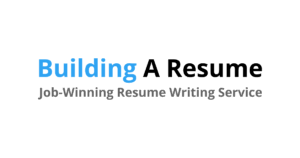Optimizing your SEO resume is crucial in today’s competitive job market, especially if you’re aiming for a position in search engine optimization or digital marketing. Crafting a resume that not only showcases your skills but also aligns with SEO best practices can help you stand out.
1. Keyword Research:
Just as you’d optimize a website for specific keywords, you should tailor your resume with relevant keywords that recruiters and hiring managers in the SEO industry are looking for. Start by analyzing job descriptions for SEO roles to identify common keywords and phrases. Incorporate these keywords naturally throughout your resume, including in your summary, skills section, and job descriptions.
2. Professional Summary:
Begin your resume with a concise professional summary that highlights your expertise in SEO. Use relevant keywords and quantifiable achievements to showcase your skills and experience. For example:
“Results-driven SEO specialist with over 5 years of experience in optimizing website performance, increasing organic traffic by 50%, and improving search engine rankings. Proficient in on-page and off-page SEO strategies, keyword research, and content optimization. Certified in Google Analytics and Google Ads.”
3. Highlight Relevant Skills:
Create a dedicated skills section where you list relevant SEO skills such as:
- Keyword research and analysis
- On-page and off-page SEO optimization
- Technical SEO audits
- Content marketing and optimization
- Link-building strategies
- Local SEO optimization
- Google Analytics and Google Search Console proficiency
- SEO tools like SEMrush, Moz, Ahrefs, etc.
4. Quantify Achievements:
Whenever possible, quantify your achievements using metrics and data. For instance:
- “Increased organic traffic by 70% through targeted keyword research and content optimization.”
- “Improved website conversion rate by 20% through A/B testing and on-page SEO enhancements.”
- “Generated 500+ high-quality backlinks resulting in improved domain authority and search rankings.”
Quantifying your achievements provides concrete evidence of your skills and contributions, making your resume more compelling to potential employers.
5. Tailor Your Experience:
When detailing your work experience, focus on roles and responsibilities that are most relevant to SEO. Highlight specific projects, campaigns, or initiatives where you’ve made a significant impact. Use action verbs and be concise yet descriptive in your descriptions. For example:
- “Conducted comprehensive SEO audits to identify technical issues and implement on-page optimization strategies.”
- “Collaborated with content teams to develop SEO-friendly content strategies, resulting in improved keyword rankings and organic traffic.”
- “Implemented link-building campaigns to acquire high-quality backlinks from authoritative websites, boosting search engine rankings.”
6. Include Relevant Certifications and Training:
List any relevant certifications, training programs, or workshops you’ve completed related to SEO. This could include certifications from Google (e.g., Google Analytics, Google Ads), HubSpot, Moz, SEMrush, etc. Certifications demonstrate your commitment to staying updated with industry best practices and trends.
7. Optimize for ATS:
Many companies use Applicant Tracking Systems (ATS) to screen resumes before they reach hiring managers. To ensure your resume gets past the ATS:
- Use a clean, professional format with consistent formatting (e.g., headings, bullet points).
- Avoid graphics, images, or unusual formatting that may not be compatible with ATS systems.
- Use standard resume headings (e.g., Work Experience, Education, Skills) to make it easier for ATS systems to parse your information.
- Save your resume as a .doc or .pdf file unless otherwise specified in the job posting.
8. Include a Link to Your LinkedIn Profile:
Include a link to your LinkedIn profile, ensuring it is up-to-date and mirrors the information on your resume. Your LinkedIn profile can provide additional context and showcase your professional network, recommendations, and endorsements.
9. Proofread and Edit:
Finally, proofread your resume carefully for spelling, grammar, and punctuation errors. Consider asking a trusted colleague, mentor, or professional resume writer to review your resume and provide feedback. A well-written, error-free resume demonstrates attention to detail and professionalism.
Conclusion:
Optimizing your SEO resume involves strategically incorporating relevant keywords, highlighting your skills and achievements, and ensuring your resume is ATS-friendly. By following these tips and tailoring your resume to the specific requirements of SEO roles you’re targeting, you’ll increase your chances of landing interviews and advancing your career in the dynamic field of search engine optimization.
https://building-a-resume.com/

